The Science|Business annual public Network conference
(09:00-17:30 CET followed by a networking reception)
Following her re-election as European Commission president, Ursula von der Leyen has pledged to put “research and innovation, science and technology, at the centre of our economy” during her next five-year mandate. The rationale for doing so has multiple drivers: a growing innovation gap between Europe, the US and China; increasingly ambitious decarbonisation goals; defence and security threats from war in Ukraine and the Middle East, spurring geopolitical interest in further EU enlargement; and the need for productivity gains to support sustainable growth and competitiveness, among others.
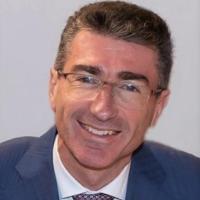
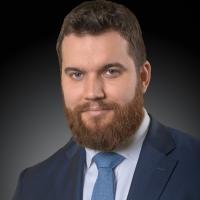
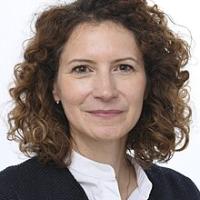
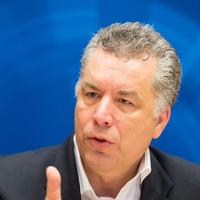
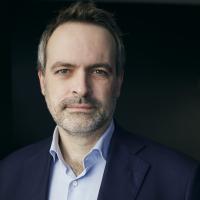
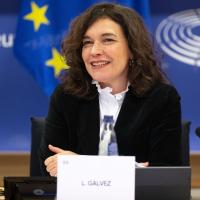


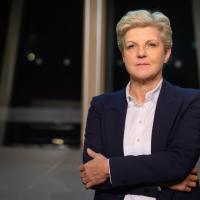
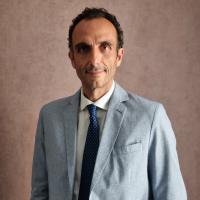

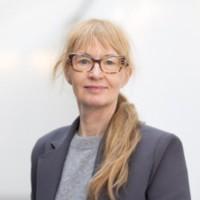
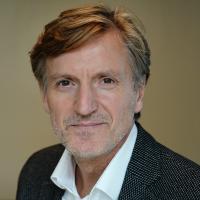
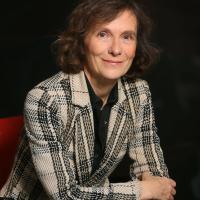

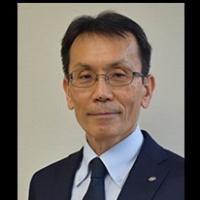

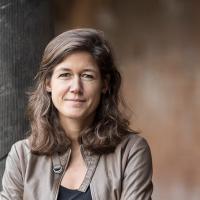


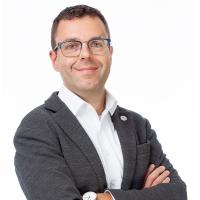
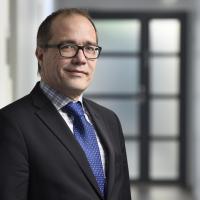
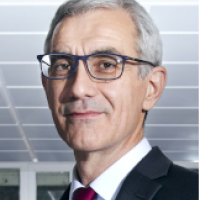


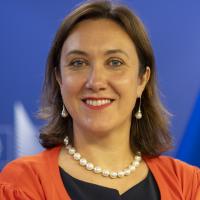
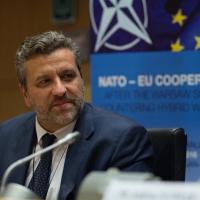
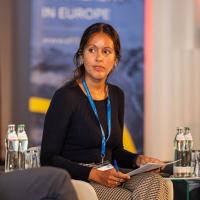
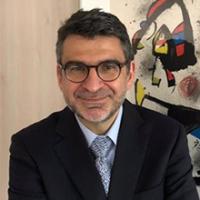
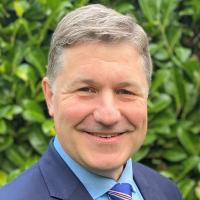



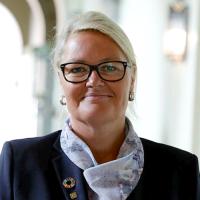
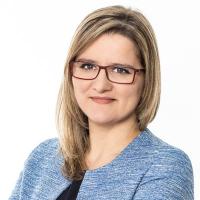
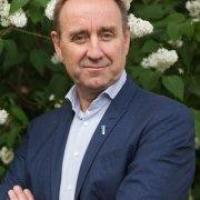
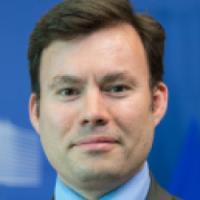

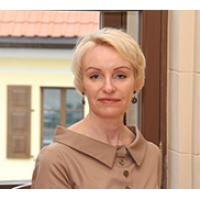

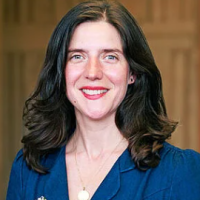
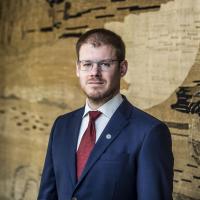
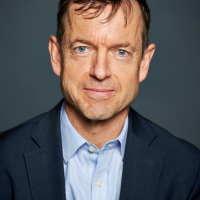

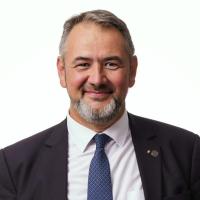

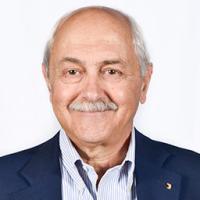
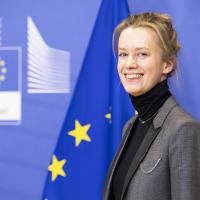


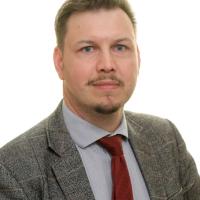


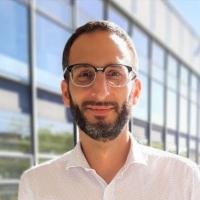


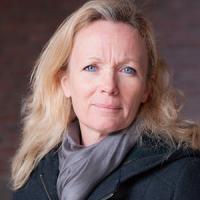
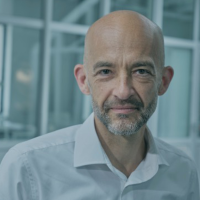
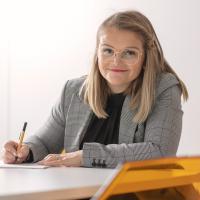




09:00 – WELCOME & OPENING REMARKS
09:05 – PLENARY SESSION
Full speed ahead: What next for R&I as the new Commission gets down to business?
With the next European Commission now approved and installed, attention turns to how President von der Leyen’s rhetoric about “R&I, science and tech, at the heart of the economy” will be turned into reality. In this opening session, discussions will focus on the burning issues in R&I that will define the first few months of action for the College of Commissioners, as implementation of the new mandate gets under way in earnest.
Panel discussion featuring:
- Annelien Bredenoord, President of the Executive Board, Erasmus University Rotterdam
- Christian Ehler, Member, European Parliament
- Pavel Doleček, Deputy Minister for Science, Research and Innovation, Government of Czech Republic
- Nanna-Louise Linde, Vice President, European Government Affairs, Microsoft
10:00 – SPOTLIGHT SESSION
4th generation universities: A call to action
A “4th generation university” is an emerging concept that champions an integrated approach to education, research and innovation, with a strong focus on societal impact and regional development. The idea is that globally-oriented universities embrace local innovation with the aim of tackling systemic challenges and driving regional economic growth. In light of the EU’s new mandate, how can this new approach help Europe to achieve its strategic goals?
• Robert-Jan Smits, President, Executive Board, TU Eindhoven
In partnership with Elsevier and TU Eindhoven
10:15 – COFFEE BREAK
10:45 – PARALLEL SESSIONS
Dual-track, high-level panel debates about two of the most important framing conditions for European R&I policy over the next five years: budget and geopolitics.
Session 1 – Money no object: How will the EU finance its science and tech ambitions?
In line with the Draghi report and various high-level analyses, Europe’s R&I ecosystem will need a massive long-term cash injection – among other reforms – to meet policy goals around competitiveness, security, resilience and productivity. Yet economic realities make it unlikely that the required investment will come from member states themselves. This session will explore the options available to the EU to enlarge the R&I pot, such as a fully-fledged capital markets union, attaching R&I conditions to other EU funds, and removing barriers to industrial R&D financing.
Panel discussion featuring:
• Raphaël Bello, Director, Finance and Human Resources, CERN
• Daniel Gros, Director, Institute for European Policymaking, Bocconi University
• Felicitas Riedl, Director, Innovation and Competitiveness, European Investment Bank
Session 2 – Juggling act: Can geopolitics and research security coexist in a globally connected world?
Even before the outcome of November’s US elections, the boundaries and time-honoured principles of international science cooperation were changing in fundamental ways. With geopolitical tensions and research security concerns continuing to rise around the globe, this session will address the realpolitik informing the EU’s new mandate – including the elevation of technological sovereignty to the level of the new College of Commissioners – and reflect on the potential implications for its international R&I strategy, both inside and outside of its flagship Framework Programmes.
Panel discussion featuring:
• Salvatore Grimaldi, President, COST Association
• Koji Saeki, Deputy Director-General, Center for Research and Development Strategy, Japan Science and Technology Agency
• Robert-Jan Smits, President, Executive Board, TU Eindhoven
• Cathrin Stöver, Chief Communications Officer, GÉANT
11:30 – TRANSITION BREAK
11:45 – BREAKOUT SESSIONS – BLOCK ONE
In her political guidelines, President von der Leyen committed to leverage R&I to revamp Europe’s industrial strategy and competitiveness, creating a new executive vice-president post and portfolio to oversee this agenda moving forward. However, the EU’s track record in this area has had mixed results over decades, and various recent reports have highlighted the tendency to channel R&D investments into mature technologies and sectors. In this part of the agenda, a select number of more in-depth, interactive sessions will look at key pillars of the “new” approach.
Session 1 – Science for life: What must Europe do to create the next generation of game-changers?
Throughout the 20th century, health and life science (HLS) sectors established themselves as one of the jewels in Europe’s industrial innovation crown. Since the millennium, however, a clear picture has emerged of advanced R&D investment, talent and intellectual assets moving to the US and Asia in order to bring their breakthrough innovations to market. In her political guidelines for the new Commission, President von der Leyen has pledged to develop a Biotech Act and Life Sciences Strategy to boost HLS competitiveness – but in parallel, political negotiations to revise Europe’s pharmaceutical legislation have now dragged into their third year. So where does this leave Europe in the race for global competitiveness? Is its HLS innovation ecosystem adequately set up to foster – and reap the rewards from – the next waves of transformational therapeutics and technologies? And if not, what needs to change before it is too late?
Panel discussion featuring:
• Lotte Bjerre Knudsen, Chief Scientific Advisor, Research and Early Development, Novo Nordisk
• Àngel Font Vidal, Associate General Director, Research and Fellowships, "La Caixa" Foundation
• Plamena Markova, Chief, International Relations, European Molecular Biology Laboratory
• Carl Johan Sundberg, Dean, North Campus, Karolinska Institutet
• Gintaras Valinčius, Chairman, Lithuanian Research Council
Session 2 – High risk, high reward: Does Europe need an ARPA model to turbo-charge its innovation ecosystem?
In line with the Draghi and Heitor reports, a session that can address whether Europe can or should attempt to replicate the US’ ARPA model on home soil. Central to discussions is the question of how best to leverage public funding to place large-scale “bets” on unproven, advanced technology futures – and whether such an approach can fit within the EU’s traditional top-down, command-and-control model. Among other considerations: does Europe have the critical building blocks to support an ARPA-type system, and could it realistically work at a pan-EU level? What would be the KPIs and factors that would determine its success? What can be learned from other countries’ analysis of its viability and attempts to build their own equivalents? And in parallel, how would a European ARPA fit with the EIC and other national programmes supporting high-risk R&I?
Panel discussion featuring:
• Paul J. Corson, Chief Innovation and Entrepreneurship Officer, University of Texas at Arlington
• José Moisés Martín Carretero, Director General, CDTI – Spanish Centre for the Development of Industrial Technology
• Federico Menna, Chief Executive Officer, EIT Digital
• Samira Nik, Programme Manager for Quantum Tech and Electronics, European Innovation Council, European Commission
• Andreas Zaby, Innovation Manager, SPRIND – German Federal Agency for Disruptive Innovation
Session 3 – Collaborative R&D: Time to go back to the drawing board?
A session that explores the issues highlighted by the Draghi and Heitor reports (in particular) around the dwindling levels of industry R&D investment and corporate engagement in EU Framework Programmes. The EU’s renewed focus on competitiveness and economic security through to 2029 will mean finding the right instruments, incentives and enabling conditions to reverse these trends and to foster major increases in science-business cooperation. Would the proposed creation of an independent industrial technology council inspire a sea change in attitude and approach from leading companies? Is the current model of partnerships the best way forward, given additional pressures to deliver fast on competitiveness and tech sovereignty objectives? And how to ensure greater pre-competitive collaboration to develop next generation technologies, not just improve mature solutions?
Panel discussion featuring:
• Lina Gálvez Muñoz, Member, European Parliament
• Tor Grande, Rector, Norwegian University of Science and Technology
• David Luengo Riesco, Head, Brussels Office, Indra
• Arto Maaninen, Rector, University of Oulu
• Agnieszka Skonieczna, Head of Unit, Investment Conditions and Public Services, DG GROW, European Commission
Session 4 – Voyage of discovery: Is science the best medium to harness the full potential of AI?
After several years of hype, serious questions are now being raised about the ‘return on investment’ and real-world impact of artificial intelligence solutions, and in particular consumer-facing, for-profit applications. Yet as the recent Nobel prize for AlphaFold indicates, their application in various scientific domains may lie at the heart of AI’s future value to society – enabling more efficient, dynamic creation of frontier knowledge across disciplines, and empowering scientists and companies to develop ambitious, problem-driven research in line with the great challenges of our age. Are we therefore on the cusp of a radical change in mindset and use of AI within the worlds of research and industry? And what will it take to bring this new age of AI innovation forward?
Panel discussion featuring:
• Xavier Baillard, Director, Innovation-to-Market, EIT Manufacturing
• Fatma Deniz, Vice President, Digitalisation and Sustainability, TU Berlin
• Fabrizio Gagliardi, Senior Strategy Advisor, Barcelona Supercomputing Center
• Andrew Ginger, Vice Provost, International Engagement, Northeastern University
• Philip Piatkiewicz, Secretary General, AI, Data and Robotics Association
12:45 – NETWORKING LUNCH
13:45 – PLENARY SESSION
Universal impact: How to accelerate R&D investment for a safer, healthier world?
When it comes to boosting trade and competitiveness, healthcare sectors are seen as “jewels in the crown” by many advanced R&D nations – yet health innovation extends far beyond pure economics, affecting the lives of billions of people. Given the current political push for greater autonomy and sovereignty, in Europe and beyond, this session will explore the wider case for sustaining global cooperation in health R&I, and the potential means to do so.
Introductory remarks:
• Rosa Castro, Senior Advocacy Officer, EU, DSW
Followed by a panel discussion featuring:
• Vanessa Candeias, Lead, Strategy and External Affairs, Impact Global Health
• Kasia Jurczak, Head of Unit, Combatting Diseases, DG RTD, European Commission
• Michael Makanga, Executive Director, Global Health EDCTP3
• Ole Olesen, Executive Director, European Vaccine Initiative and Tuberculosis Vaccine Initiative
Supported by DSW and Impact Global Health
14:30 – TRANSITION BREAK
14:45 – PARALLEL SESSIONS – BLOCK TWO
For many R&I stakeholders, perhaps the biggest questions of all surround the future of the EU’s framework programme for research beyond Horizon Europe. The afternoon parallel sessions will focus on a select number of transversal themes at the interface between the new mandate and the wider debate about the priorities, structure and purpose of FP10.
Session 1 – Tech talent in demand: How cutting-edge research shapes future innovators
To address the increasing demand for skilled professionals in emerging technologies, innovative solutions are urgently needed. This session, which builds on the success of the ATTRACT Academy, will explore how state-of-the-art research infrastructures can leverage their unique resources and capabilities to connect students, researchers, higher education experts and industry leaders and train the next generation of tech talents. It will also feature a dynamic “pitch” session involving graduates from the ATTRACT Academy and a panel of senior experts from across the R&I spectrum.
Introductory remarks:
- Pau Jordan Oliveras, System Engineer, CERN and Student, ATTRACT Academy
- Lucienne De Waal, Industrial Designer, Float IoT and Student, ATTRACT Academy
- Aaro Packalén, Student, Aalto Design Factory and ATTRACT Academy
Followed by a panel discussion featuring:
- Antoaneta Angelova-Krasteva, Director, Innovation, Digital Education and International Cooperation, DG EAC, European Commission
- René Repasi, Member, European Parliament
- Toril A. Nagelhus Hernes, Chair, Expert Group on Innovation, EUA and Pro Rector, Innovation, NTNU
- Shreyasi Kar, Head of Operations, Aalto Design Factory, Aalto University and Project Consortium Board Member, ATTRACT
Supported by the ATTRACT Project
Session 2 – Skills for competitiveness: How to build innovation capacity and meet industry needs in higher education institutions?
The quest for greater competitiveness and innovation performance, both within EU borders and at the global level, will be one of the defining priorities of the EU’s next five-year mandate. As highlighted by the Draghi and Heitor reports last autumn, a key success factor will be strengthening synergies between the worlds of higher education and industry – not least to “turbo charge” the skills and knowledge valorisation pipeline that will provide European companies with the necessary capabilities to thrive in emerging sectors or maintain leadership in existing ones. Nonetheless, while higher education institutions (HEIs) recognise their pivotal role in this process, it remains a complex challenge to transform their institutional systems and cultures. So what will it take for HEIs and industry to become true co-creators of the skills and technologies that will define our future? Drawing on practical examples and strategic insights, this session will explore the incentives, pathways and policies that can enable this vital ambition to be realised in the years ahead.
Opening remarks:
• Dolores Volkert, Head, EIT Higher Education Initiative
Panel discussion featuring:
• Manuel Aleixo, Cabinet Expert, Cabinet of Commissioner Zaharieva, European Commission
• Casper Garos, Head, Public-Private Partnership Programs, Philips
• Maria-Valerie Schegk, Secretary General, YUFE Alliance
• Freek van Muiswinkel, Director, Entrepreneurship and Regional Partnerships, Utrecht University
• Dolores Volkert, Head, EIT Higher Education Initiative
Supported by the EIT Higher Education Initiative
Session 3 – Added value: Can Widening countries become a driver of European competitiveness?
Per the recent Widening SG planning discussions: the main focus will be on the contribution of Widening R&I ecosystems to VDL’s competitiveness agenda – both in terms of becoming more competitive within the EU, and boosting European competitiveness at an international level. In parallel, however, is the bigger question of where a Widening 2.0 instrument would fit under the proposed Competitiveness Fund, and with which strategic objectives.
Panel discussion featuring:
• Nick Fowler, Chief Academic Officer, Elsevier
• Ladislav Krištoufek, Vice Rector, Research, Charles University
• Eszter Lakos, Member, European Parliament
• Aistė Vilkanauskytė, Adviser, Technology and Innovation Division, Ministry of Education, Science and Sport, Government of Lithuania
Supported by the Science|Business Widening Initiative
Session 4 – Start me up: What must Europe do differently for new and scaling companies to succeed?
One of the most intriguing aspects of the portfolio for Europe’s new research commissioner is the inclusion of start-up and scale-up companies as a priority area for attention. This session will convene a first set of high-level debates about the orientation and objectives of a forthcoming strategy from the Commission. At the heart of discussions is the “framework conditions” mentioned in President von der Leyen’s mission letter to Ekaterina Zaharieva, and how those will be defined moving forward. Among the potential topics for consideration: how can the EU better incentivise tech transfer and research commercialisation under FP10, as well as the transferability of R&D results between instruments? What can be done to strengthen the value of – and ease of access to – existing platforms and funding schemes for start-up and scaling companies? Which role can cross-border cooperation play in supporting SMEs’ growth pathways? Should amendments to IP regimes, state aid regulations, data rules and more be at the top of the list? And what role might different financial actors play in providing the large ticket investments for companies seeking to scale their way to market?
Panel discussion featuring::
• Annika Borgenstam, Vice President, Research, KTH Royal Institute of Technology
• Jean-Marc Bourez, Chief Executive Officer, EIT Health
• Jimena García-Romeu Nuñez, Chief Executive Officer, Alcyon Photonics
• Clark Parsons, Chief Executive Officer, European Startup Network
• Marina Silverii, Executive Director, ART-ER Attractiveness Research Territory
15:45 – COFFEE BREAK
16:10 – SPOTLIGHT SESSION
Jewel in the crown: The value of public-private partnerships to FP10
• Roman Seele, Leader, Future of Flight Engineering, GE Aerospace
Supported by GE Aerospace
16:30 – PLENARY SESSION
Evolution vs. revolution: What next on the road to FP10?
A closing plenary session which will address the next steps and process that the European Commission will follow in drafting its initial proposals for FP10, which are due to be published around the summer of 2025. Above all, it will shine more light on how the R&I directorate will approach the challenge of balancing strategic priorities from the EU’s new mandate with recommendations from the Letta, Draghi and Heitor reports, among others.
Opening Q&A with:
• Marc Lemaître, Director-General, DG RTD, European Commission
Followed by a panel discussion featuring:
• Martina Brockmeier, President, Leibniz Association
• Silvia Lenaerts, Member, Governing Board and Executive Committee, EIT
• Mark Lloyd Davies, Global Head, Strategic Partnership and Resource Group, Johnson & Johnson
17:30 – CONFERENCE CLOSE & NETWORKING RECEPTION
The urgency to act has also been highlighted by the flagship reports from Enrico Letta and Mario Draghi, and more recently in the recommendations of the independent expert group chaired by Manuel Heitor. Unsurprisingly, each call for massive increases in R&I financing to achieve long-term policy goals – yet do so against a backdrop of national economic constraints and political schisms across the continent. By extension, early indicators from within the Commission suggest that a radical restructuring of budget lines is being considered for the years ahead, in order to channel science and technology investments through a macro-level competitiveness instrument.
So as the EU institutions begin their deliberations on both the next multi-year budget (2028-2034) and a successor to Horizon Europe (FP10), how will Ms. von der Leyen’s rhetoric play out in reality? This question lies at the heart of the 2025 Science|Business Annual Network Conference. Among the key issues to be explored in February: Can member-states be persuaded to put more money into the R&I pot, or is a fully-fledged capital markets union the only realistic way to achieve the desired scale of investment? Will the prospective competitiveness fund transform R&I funding and governance for better or for worse? Should the Commission opt for revolution or evolution when it comes to FP10, not least in the context of the Widening agenda and industry-led partnerships? How would a “whole-of-government” approach work in practice in the next framework programme? Does Europe need its own ARPA-style mechanism to foster breakthrough innovation? And how will geopolitics affect future models of international cooperation and the balance between research security, integrity and openness?
On February 6, Science|Business will convene leading figures from the worlds of policy, industry and research, along with the members of its international Network, to address these questions and more. Join us in Brussels and online for the first series of public high-level debates on the future of R&I as the EU’s new mandate begins in earnest.
For further practical information, please contact [email protected]
Venue:
Maison de la Poste (Tour & Taxis)
Rue Picard 5/7, 1000 Bruxelles

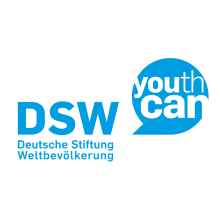



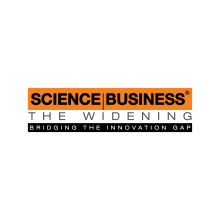

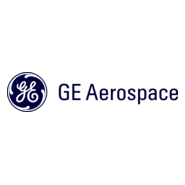


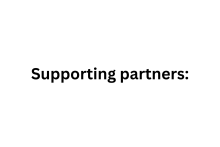
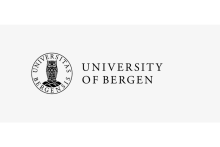
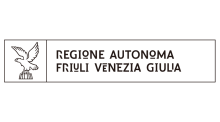
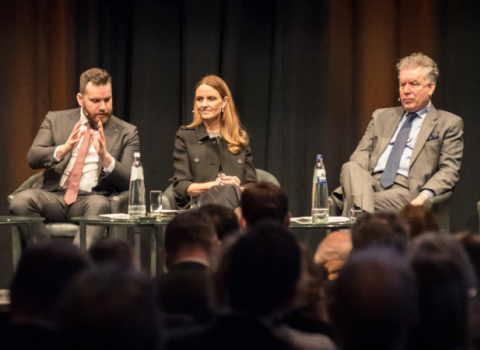
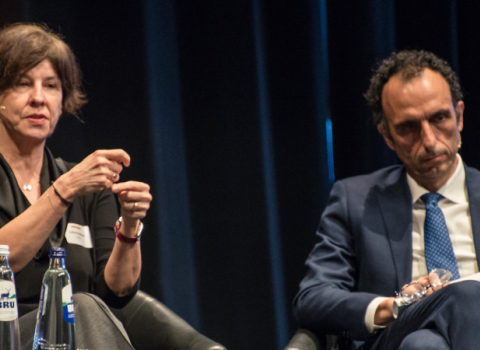
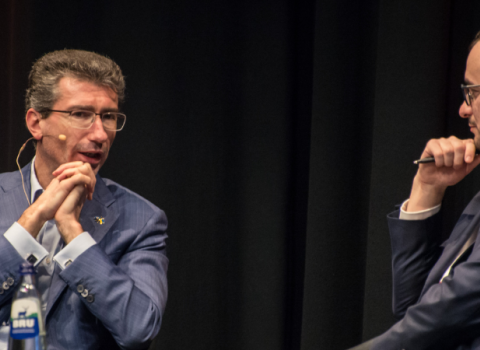


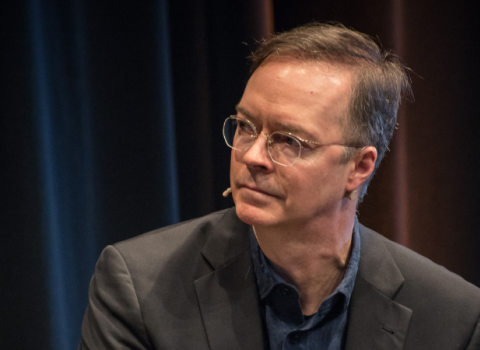

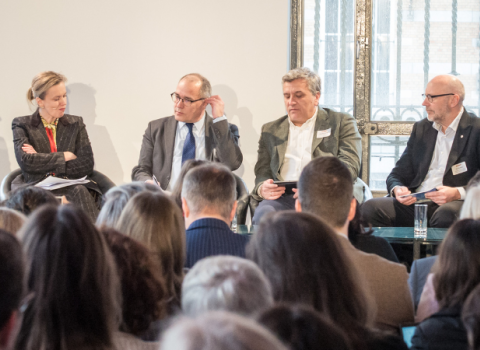
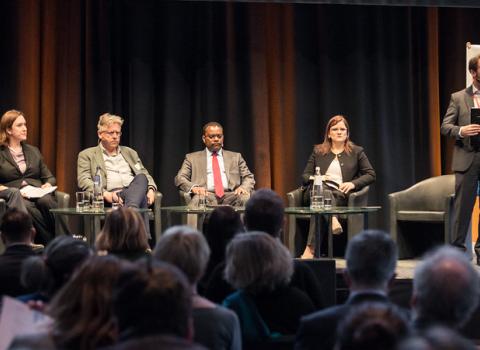
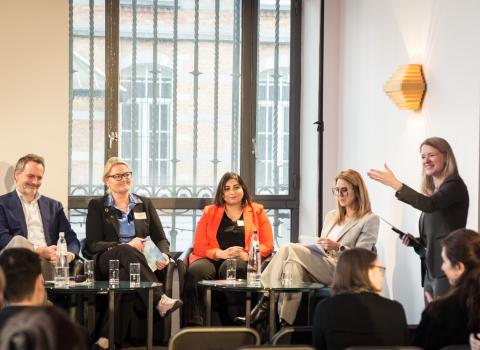
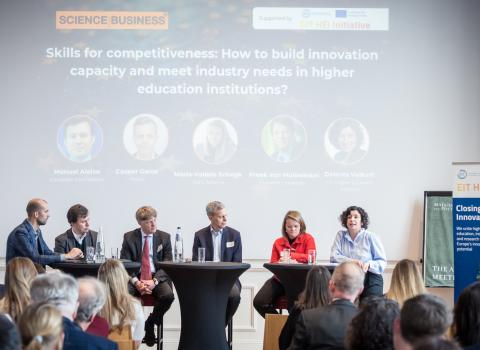

 A unique international forum for public research organisations and companies to connect their external engagement with strategic interests around their R&D system.
A unique international forum for public research organisations and companies to connect their external engagement with strategic interests around their R&D system.